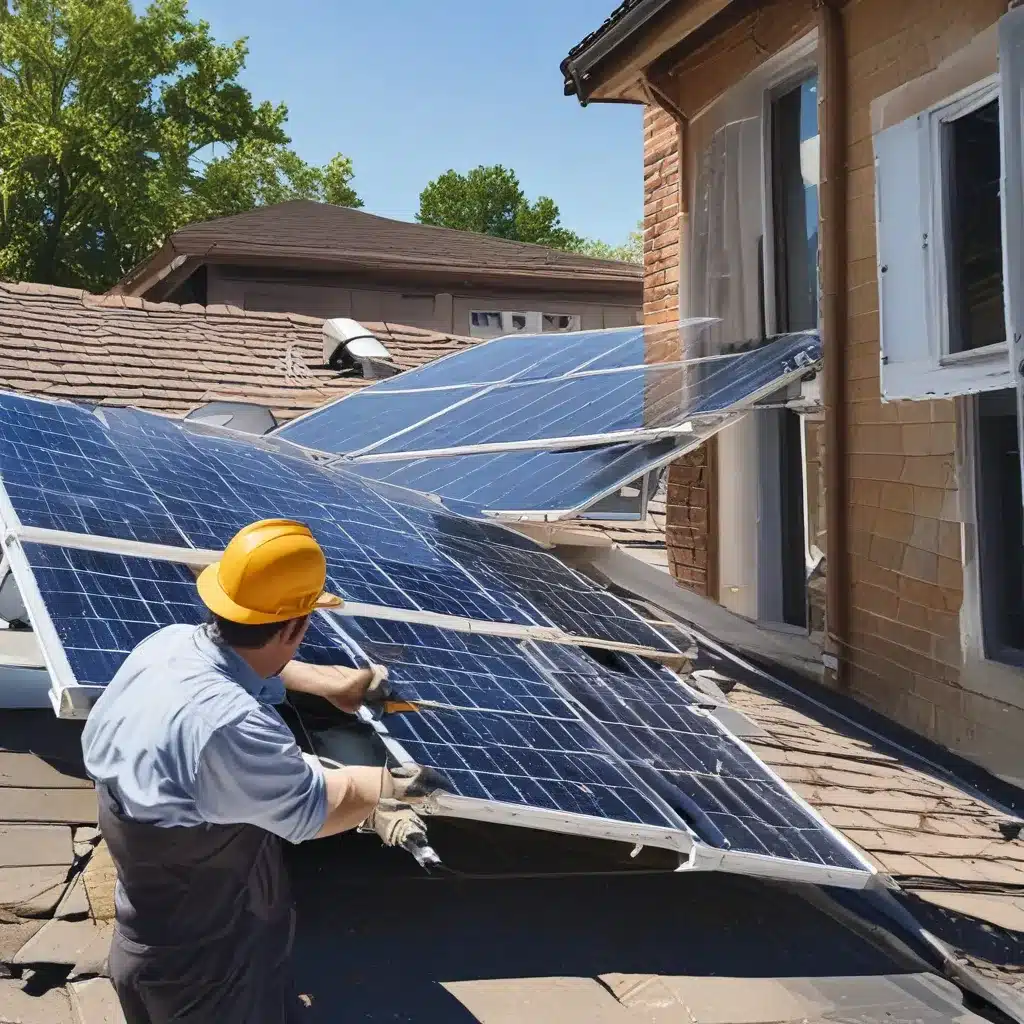
Shine a Light on Shady Practices
You know what they say – the sun’s out, but the deals can be shady. As someone who’s been considering making the switch to solar power, I’ve learned that the solar industry has a bit of a reputation for questionable sales tactics. And let me tell you, I’m not here for any sneaky business. I want to make sure I get the best bang for my buck, without any solar-powered surprises down the line.
So, before I take the plunge and start harnessing the power of the sun, I’m on a mission to vet potential solar installers with a fine-toothed comb. Because let’s be real, these solar panels aren’t cheap, and I’m not about to get stuck with an overpriced system that underperforms faster than a solar eclipse.
Navigating the Solar Sales Minefield
The solar industry is a booming business, and with that comes a whole lot of competition. Salespeople are out there using every trick in the book to try and sweet-talk me into a deal. It’s like they’re playing a high-stakes game of solar-powered poker, and I’m the one trying not to get bluffed.
One recent case in the Detroit area really drove this point home for me. Customers claimed that a company called Pink Solar (now known as PowerHome Solar) made all sorts of promises about their solar panels that just couldn’t be delivered. Apparently, these panels were way more expensive than expected and generated way less energy than they were supposed to. As CNET reports, it’s a cautionary tale that shows how dishonesty can creep into the solar sales game.
Now, I don’t know about you, but I’m not about to let myself get swindled like that. I’m going to do my homework, ask all the tough questions, and make sure I understand exactly what I’m signing up for before I even think about putting my John Hancock on any dotted lines.
The Art of Comparison Shopping
One of the first things the experts at the International Association of Better Business Bureaus recommend is to get at least three bids from different solar companies. This way, I can weed out anything that’s ridiculously overpriced and really get a feel for what the going rate is.
But it’s not just about the bottom line, you know? I want to use this process as an opportunity to learn as much as I can. I’m going to grill these salespeople on every aspect of the deal – from the nitty-gritty details of the federal solar tax credit to the nuances of net metering agreements with my utility company. If they can’t give me straightforward, transparent answers, then that’s a big red flag.
And speaking of red flags, CNET warns that any pushy salespeople who try to rush me into signing a contract before I’ve had a chance to read it over and get all my questions answered are major trouble. I mean, come on, if you’ve got nothing to hide, why the need for the hard sell? Time to put on my skeptic hat and dig a little deeper.
Shining a Light on Solar Scams
As I dive deeper into the world of solar power, I’m starting to realize that there are all sorts of ways these companies can try to pull the wool over my eyes. From exaggerated claims about energy savings to misleading “free solar” offers, it’s like a minefield of potential pitfalls.
One thing that’s really caught my attention is the whole concept of power purchase agreements (PPAs) and solar leases. Sure, they might seem like a tempting low-cost option, but CNET explains that I might actually end up saving more in the long run by just buying the panels outright. After all, I don’t want to be locked into some deal where I’m paying more for my electricity than I would be with my regular utility company.
And speaking of utility companies, the folks on Reddit have clued me in to the importance of understanding net metering. Apparently, the rates utilities use to compensate me for the electricity my solar panels produce aren’t exactly set in stone. So, I better make sure I’ve got the details sorted out before I sign on the dotted line.
Seeing the Light: Choosing the Right Solar Installer
As I continue my quest to find the perfect solar installer, I’m realizing that it’s not just about the bottom line. Sure, I want to save as much money as possible, but I also want to make sure I’m getting a quality system that’s going to perform as advertised.
That’s why I’m paying close attention to things like the orientation and shading of my roof. As CNET points out, if my panels are facing the wrong way or getting too much shade, that’s going to seriously impact their efficiency. And let’s not forget about the condition of my roof itself – I don’t want to have to worry about removing and reinstalling those panels every time I need to do some repairs.
Fortunately, the experts at MarketWatch have reassured me that there are plenty of organizations out there dedicated to helping people like me navigate the solar industry. From industry groups to government agencies, it seems like there are a lot of folks who want to make sure I have a positive experience.
So, with all this knowledge under my belt, I’m feeling pretty confident that I can spot a shady solar company from a mile away. And you know what they say – the best defense is a good offense. By doing my due diligence and vetting these installers thoroughly, I’m going to make sure I end up with a solar system that’s as reliable and cost-effective as the sun itself.
Now, if you’ll excuse me, I’ve got some more research to do. After all, I’ve got a lot of important decisions to make before I take the leap and go solar with Solar As Systems, Inc.. Wish me luck!


